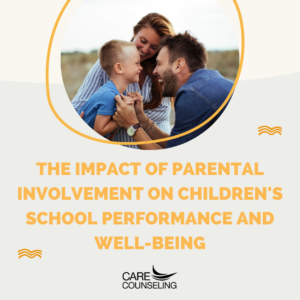Parental Involvement in Children’s School Performance
 The role of parents in a child’s education extends far beyond providing school supplies and attending parent-teacher conferences. Extensive research indicates that parental involvement has a profound impact on children’s academic performance, emotional well-being, and overall success.
The role of parents in a child’s education extends far beyond providing school supplies and attending parent-teacher conferences. Extensive research indicates that parental involvement has a profound impact on children’s academic performance, emotional well-being, and overall success.
The Spectrum of Parental Involvement
Parental involvement encompasses a wide range of activities, from helping with homework and attending school events to engaging in meaningful conversations about education and life aspirations. It’s important to recognize that involvement can take different forms depending on the child’s age, needs, and family dynamics.
- Supporting Academic Growth:
Parents who are actively engaged in their child’s learning provide an environment conducive to academic success. This involvement can include helping with homework, reviewing assignments, and encouraging a love for learning.
- Creating a Positive Learning Environment:
A supportive home environment where learning is valued fosters curiosity and a growth mindset. Parents who engage in discussions about various subjects, read together, and provide educational resources contribute to the child’s cognitive development.
- Communication and Partnership:
Regular communication with teachers and school staff builds a partnership that supports the child’s educational journey. Attending parent-teacher conferences, participating in school meetings, and staying informed about the curriculum are essential aspects of this partnership.
- Emotional Support:
Parents who are attuned to their child’s emotional needs create a safe space for them to express their thoughts and feelings. This emotional support contributes to the child’s overall well-being, reducing stress and anxiety.
- Encouraging Extracurricular Activities:
Supporting a child’s involvement in extracurricular activities, clubs, and sports promotes social skills, teamwork, and a well-rounded education.
The Impact on Academic Performance
- Increased Motivation and Engagement:
Children whose parents are involved in their education show higher levels of motivation and engagement. When parents show interest in their academic progress, children feel valued and are more likely to invest effort in their studies.
- Enhanced Cognitive Development:
Parental involvement encourages intellectual curiosity and critical thinking. Children exposed to discussions and debates at home develop stronger cognitive skills and are better equipped to excel academically.
- Improved Study Habits:
Parents who establish a structured study routine and help their children manage time effectively contribute to improved study habits. This, in turn, leads to better organization and time management skills.
The Impact on Emotional Well-being
- Increased Self-Esteem:
A supportive home environment where parents celebrate achievements and encourage resilience enhances a child’s self-esteem and confidence.
- Better Coping Skills:
Children with involved parents are more likely to develop effective coping mechanisms to deal with stress and challenges. They feel more comfortable seeking guidance and support from their parents.
- Reduced Stress and Anxiety:
Parental involvement helps children manage school-related stress. Knowing they have a support system at home to talk to and seek advice from can significantly reduce anxiety levels.
- Improved Communication Skills:
Parents who actively engage in conversations with their children about their experiences and emotions contribute to the development of strong communication skills.
The Long-Term Benefits
- Stronger Parent-Child Bond:
Active parental involvement fosters a close parent-child bond that extends beyond school years. This relationship provides a solid foundation for open communication and mutual understanding.
- Higher Aspirations:
Children with involved parents are more likely to have higher aspirations for their future. This stems from the belief that their parents support and believe in their potential.
- Lifelong Learning:
When parents model a love for learning and support their children’s academic pursuits, children are more likely to develop a lifelong thirst for knowledge.
The influence of parental involvement on children’s school performance and well-being is undeniable. By actively engaging in their education, parents create a positive and nurturing environment that empowers children to thrive academically and emotionally. Whether it’s helping with homework, attending school events, or fostering open communication, every effort contributes to a child’s holistic development. As parents, you have the incredible opportunity to shape your child’s future through meaningful involvement in their education.



























